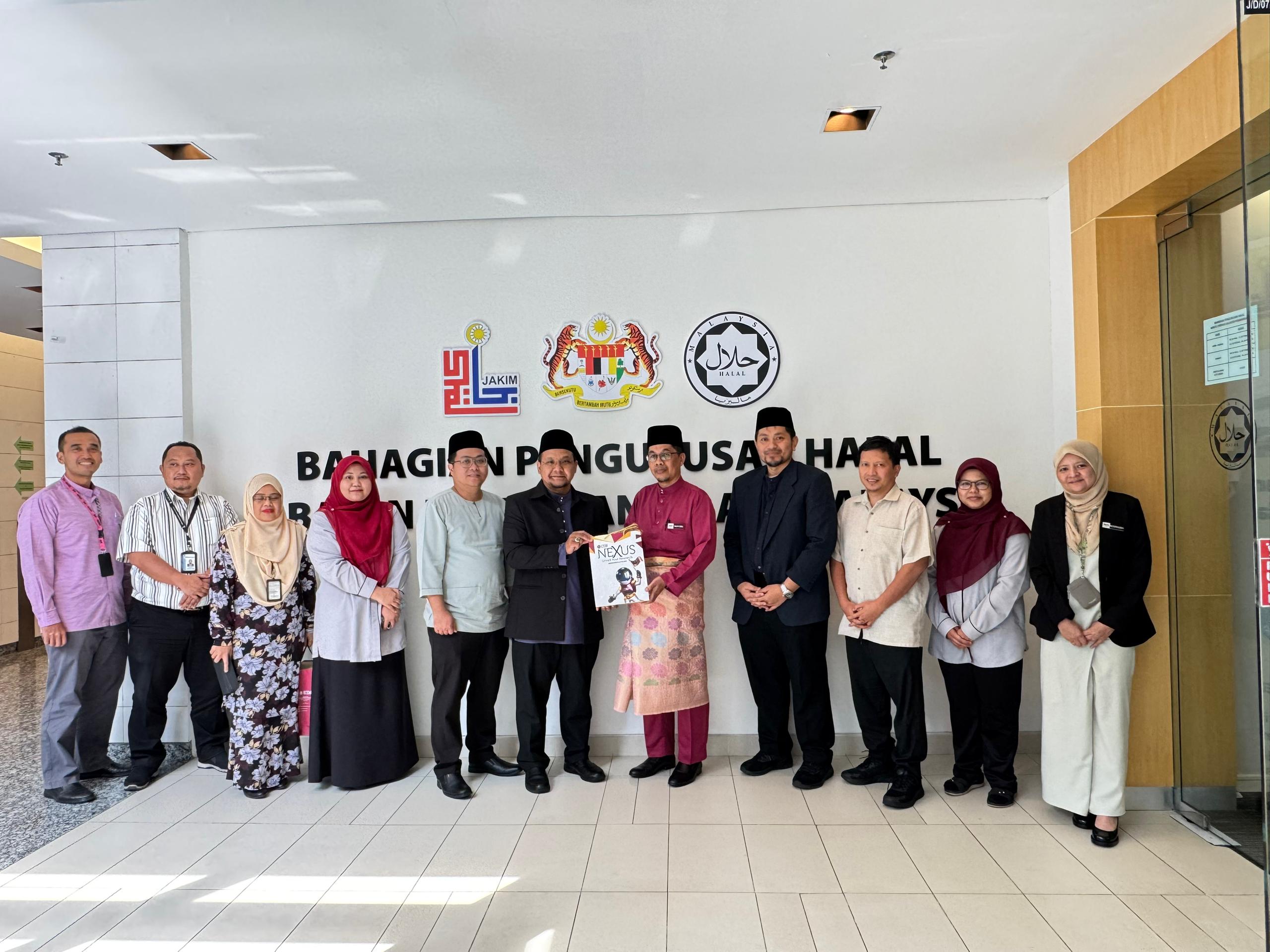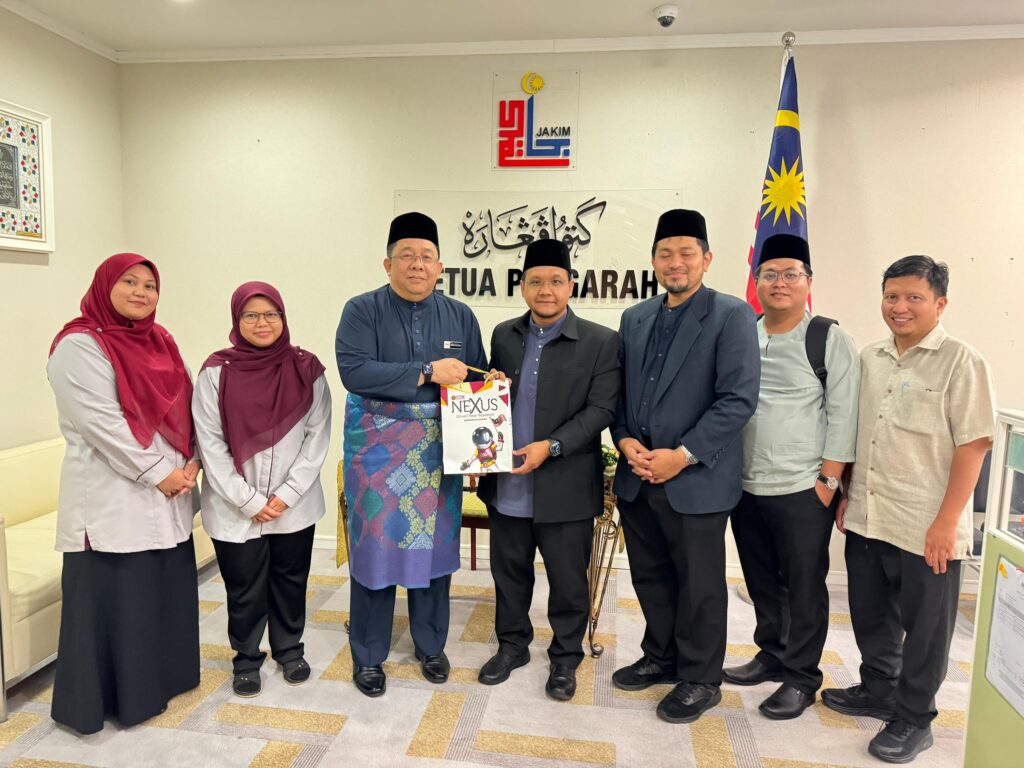PUTRAJAYA, 23 May 2025 – Bridging academia and governance, Universiti Teknologi Malaysia (UTM) embarked on a collaborative journey with the Department of Islamic Development Malaysia (JAKIM) to enhance halal research and academic programs. A delegation from UTM’s Centre for Fiqh Science and Technology Research (CFiRST) visited JAKIM on 23 May 2025, setting the stage for future collaborations that aim to solidify Malaysia’s position as a global halal hub.
The UTM delegation, led by Dr. Aminudin bin Hehsan, Director of CFiRST, included PM Dr. Mohd Fauzi bin Abu@Hussin, Deputy Dean (Research, Innovation & Development) from Faculty of Social Science and Huminity (FSSH), Dr. Mohammad Naqib bin Hamdan, Dr. Muhammad Zulhilmi bin Zailani and faculty members Dr. Norhidayu Muhamad Zain and Dr. Nur Izzati Mohamad Norzilan all from FSSH. The UTM team engaged in productive discussions with key figures from JAKIM, including Director General Dato’ Dr. Sirajuddin bin Suhaime and Ustaz Muhyidin bin Aziz @ Saari, Director of Halal Management Division, along with several senior assistant directors.
The primary objective of the visit was to explore potential academic and research collaborations within the halal sector. Discussions centered around UTM’s proposed halal-related academic program. Dato’ Dr. Sirajuddin provided valuable insights, ensuring the program aligns with national priorities and industry demands. He proposed several research directions for UTM, focusing on the evolving needs of the halal industry and JAKIM’s regulatory role.
Further talks with JAKIM’s Halal Management Division covered ongoing halal developments at UTM and explored strategic collaborations, including joint research initiatives, training programs, and capacity-building efforts. JAKIM highlighted areas where UTM’s expertise could enhance Malaysia’s halal management system and bolster its global reputation for halal quality assurance. This initiative aligns with Malaysia’s broader efforts to strengthen its halal industry, as evidenced by the Halal Industry Master Plan 2030, which aims to boost the industry’s contribution to the national GDP. The visit signifies a pivotal step in fostering academia-industry-government partnerships to advance Malaysia’s halal sector. Such collaborations are vital for driving innovation, ensuring quality, and maintaining Malaysia’s competitive edge in the global halal market.
—
By: Dr. Muhamad Zulhilmi bin Zailani, Ibnu Sina Institute For Scientific & Industrial Research, Jabatan Timbalan Naib Canselor (Penyelidikan dan Inovasi)





